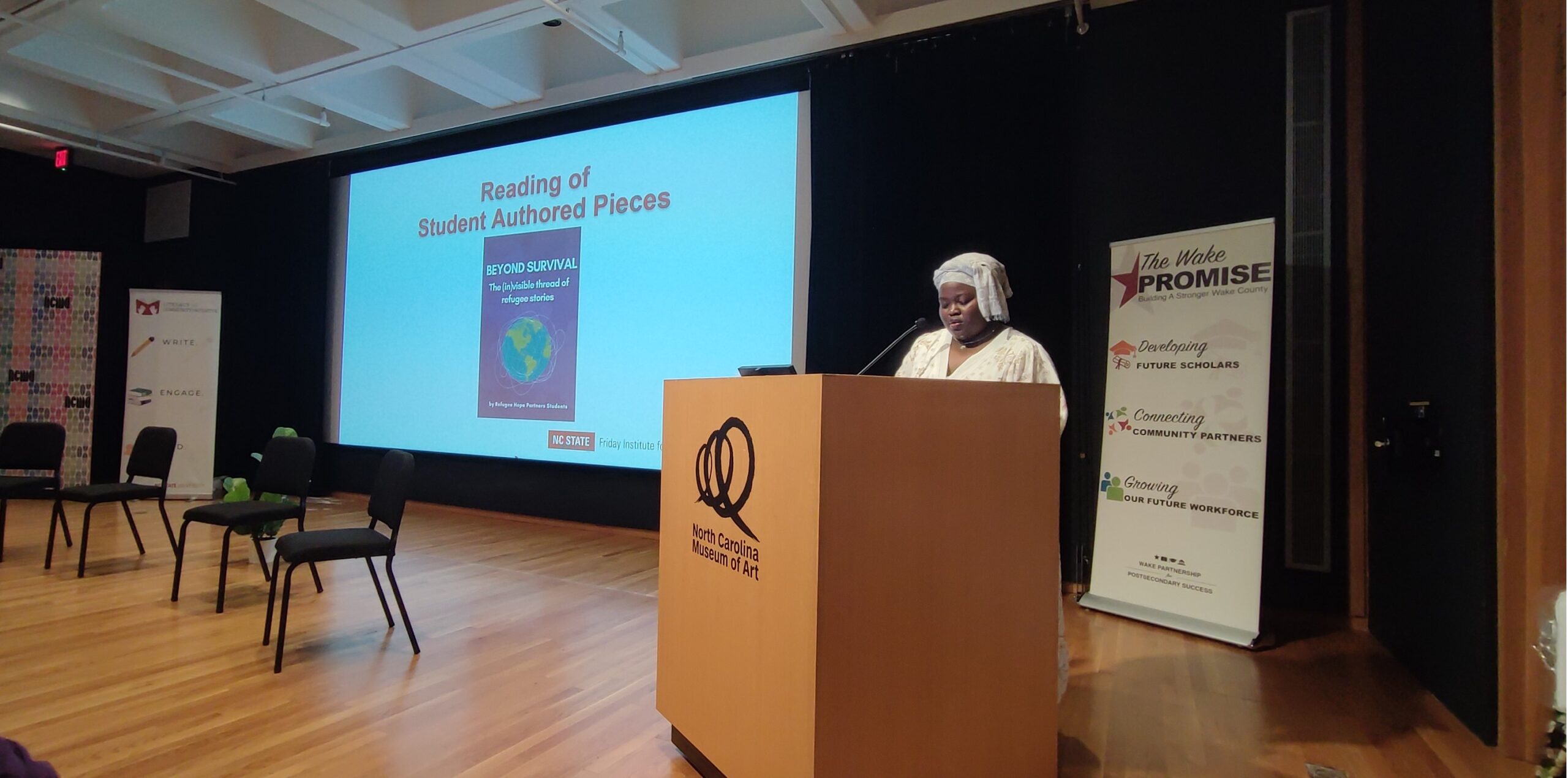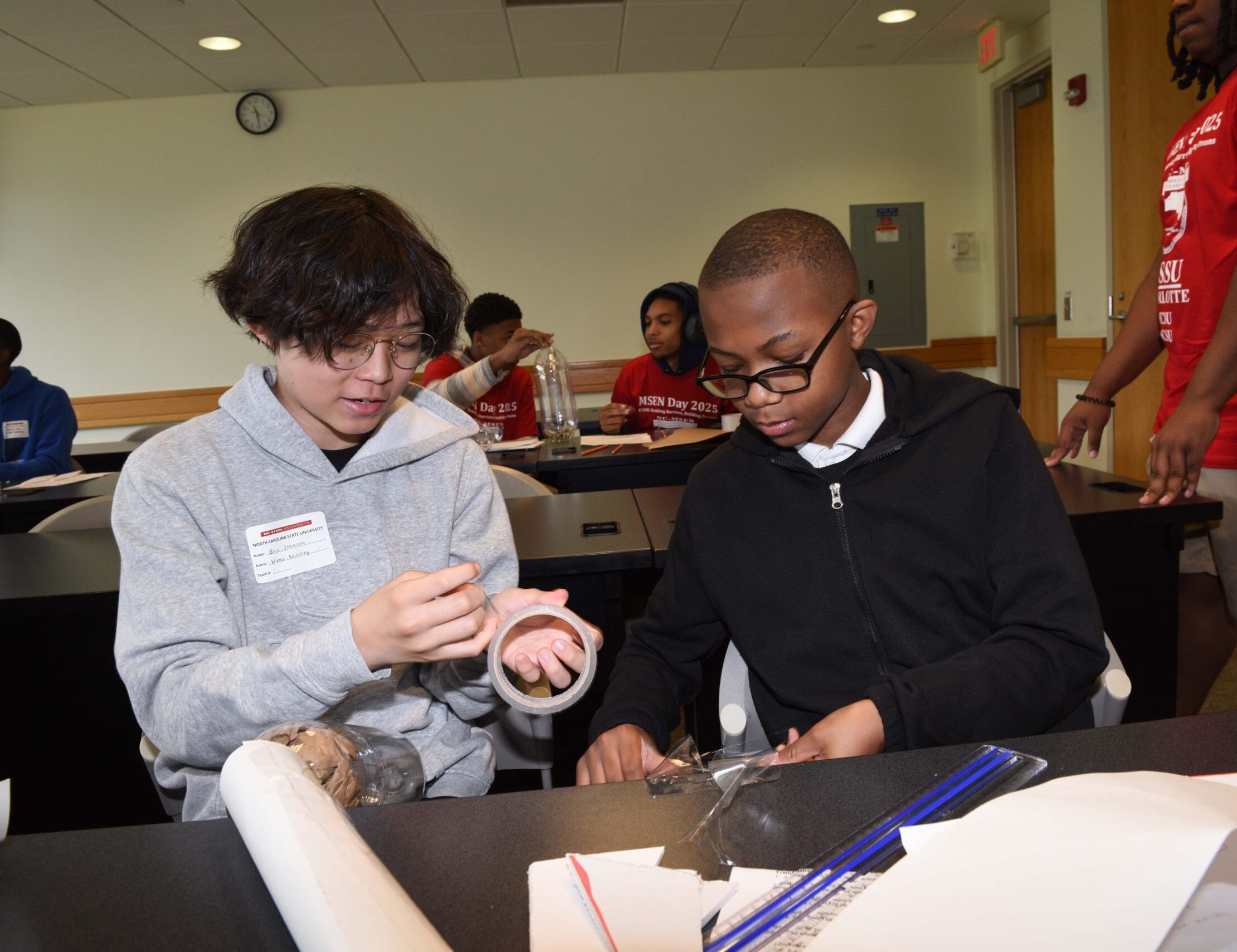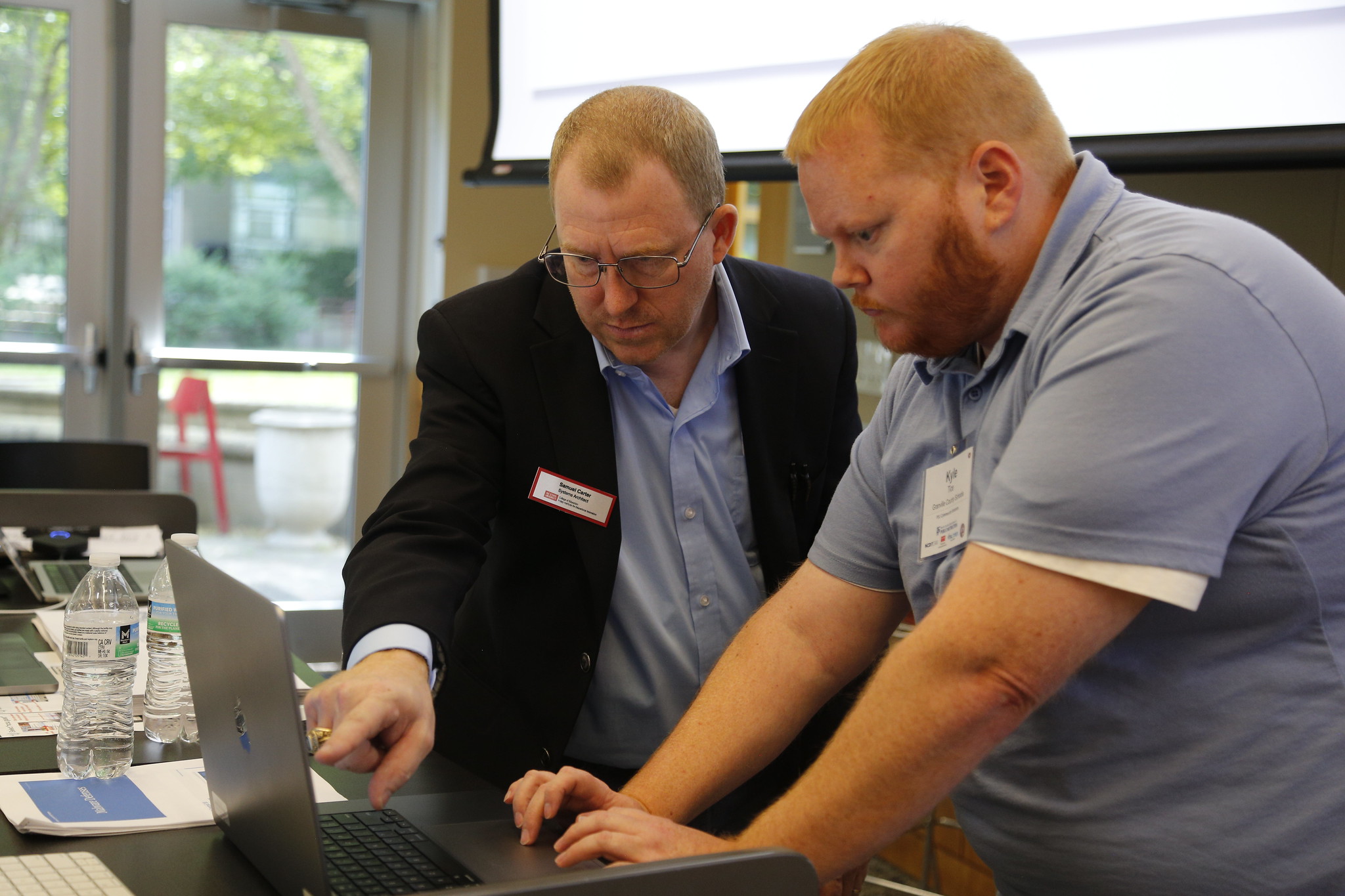Exploring Next Generation Education Webinar Highlights Need to Prepare Educators, Social Workers to Help Students Deal with Trauma
Teachers and social workers are important allies for children and families who have experienced trauma. However, researchers from the Friday Institute for Educational Innovation, NC State College of Education and School of Social Work at NC State University have found that many educators and social workers do not feel prepared to engage in and address issues related to trauma.
These research findings, in addition to a panel discussion of educators and social workers, were shared during the Friday Institute’s recent webinar, “Exploring Next Generation Education: Addressing Trauma as Students Return to School,” held Aug. 31 and hosted by Hiller A. Spires, Ph.D., executive director of the Friday Institute and associate dean in the NC State College of Education.
Researchers on the “Trauma Informed Practice Support (TIPS) in Schools and Communities: Collaboration Between Education and Social Work” project were Angela Wiseman, Ph.D., associate professor of literacy education in the College of Education; Brittany Miller, research associate at the Friday Institute; and Qiana Cryer-Coupet, Ph.D., assistant professor of social work in the School of Social Work. Their work was supported by a Catalyst Grant from the Friday Institute and College of Education.
“We’re delighted that the Catalyst Grant program could provide funding to support this important work on trauma informed practices,” said Spires.
Panelists included Darlene Johnson, coordinator of the School Social Work Certification Track at the School of Social Work at NC State University; Ervin Jones, restorative facilitator at Elizabeth City Middle School; Delisha Moore, principal at Elizabeth City Middle School; and Kevin Neiley, a social worker in the Wake County Public School System and a lecturer at the School of Social Work.
The session explored insights gained from regional North Carolina educator surveys and focus groups as well as information on how to inform educator support systems, teaching practices and stakeholder outreach to better support staff and community needs. Read below for four takeaways from the discussion.
To begin to address trauma in schools, educators need to start with themselves
Panelists shared the importance of school staff examining their own traumas and triggers first, as well as the need for self-care, especially during the pandemic.
“We had to overcome a lot of our childhood trauma in order to be able to help our students, because what we realized is that they began to be triggers for us,” said Moore.
Once the panelists addressed and understood their own trauma, they could handle triggers in a healthy manner so that they could be fully present for their students.
Provide more professional development for educators, especially in partnership with social workers
Wiseman, Miller and Cryer-Coupet have created a partnership with social workers and teachers to learn from each other and share their knowledge, in the hopes of creating a richer environment within schools to support educators and students. One of the aims of their research project is to plan and deliver a webinar for in-service teachers and social workers on addressing the needs of children. Professional preparation is just one aspect of their TIPS model, which also includes personal experiences and a needs assessment.
Moore instituted a three-year plan at Elizabeth City Middle School to ensure teachers were ready to implement restorative practices in their classrooms. The plan included working with a facilitator to learn restorative practices for themselves as well as attending multiple workshops about restorative practices, including those with the North Carolina Resilience & Learning program.
Make more space for restorative practices within classes
“I believe it really is a way to reach our students in classrooms—having circle time for elementary school students, having restorative practices to build relationships between our teachers, children, peer to peer,” said Johnson.
One of the restorative practices implemented at Elizabeth City Middle School is called the “REST (recognize, educate, solutions and transition) Room”—a place where students can reset and regroup. While in the REST Room, students recognize the problem they are tackling, educate themselves on the problem or trauma, come up with solutions and transition back to their learning environment or classroom.
Bring the whole school community into the process of self-awareness and education
Not only was administrator support and buy-in important, but panelists also stressed the need for whole-school buy-in. Since everyone on a school staff has contact with students and could impact their learning experience, everyone needed to be cognizant of their impact.
“I think training goes beyond our teachers, our administrator support, our student support services staff, our psychologists and counselors, and social workers,” said Johnson. “I think it extends to our bus drivers and to our lunch personnel that really have an impact on our children.”



